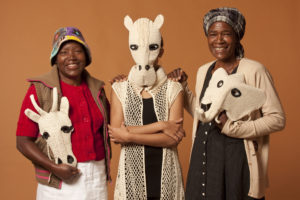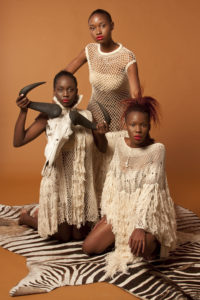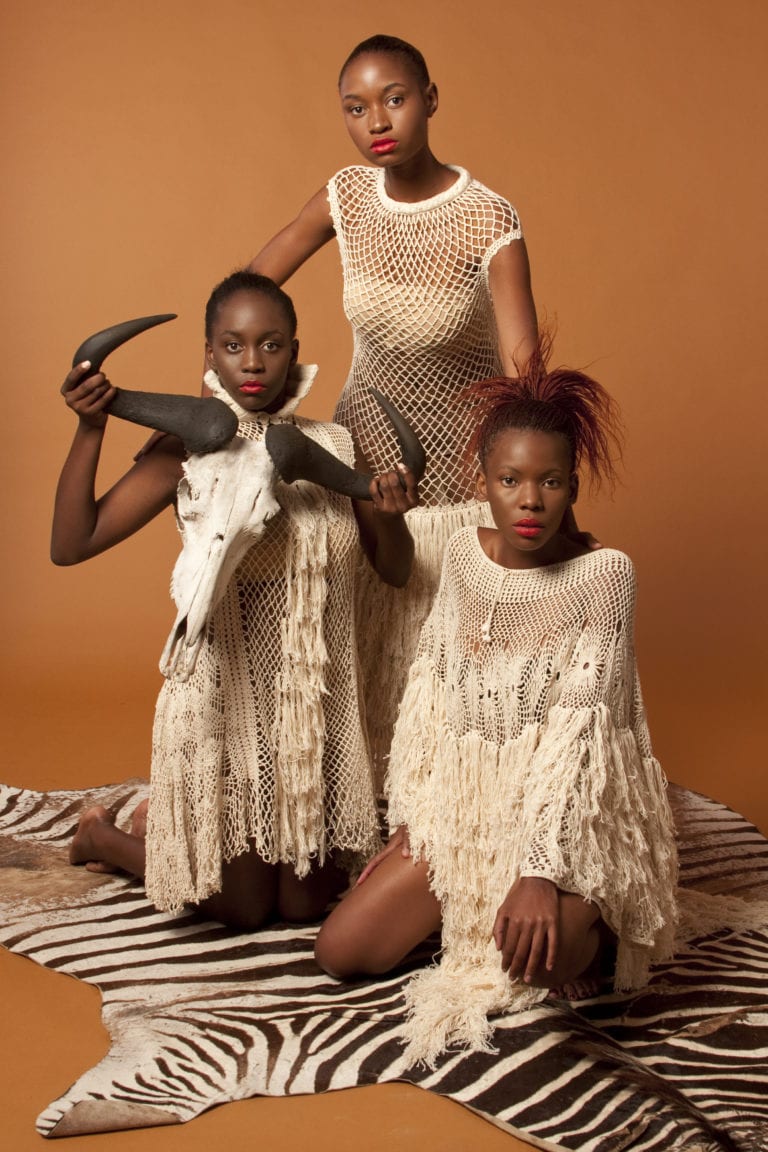Mustard Seed Africa, Zimbabwe and Swaziland
We recently caught up with Gail Mqhele Mawocha, Director at Mustard Seed Africa, to learn more about the brand and how it is investing in women.
Mustard Seed Africa (MSA) is an organisation with operations in Zimbabwe and Swaziland that focuses on social and economic empowerment initiatives for women at the grassroots level. The organisation was formed in 2010 in Swaziland by Gail Mawocha after the realisation that women have the necessary skills to earn an income but need to form strategic partners in getting their products out to the market.
The Zimbabwe operation was formalised in 2013 after Gail moved back to her home country. MSA focuses on the entire value chain including product development, design, branding and marketing and bridges the gap between rural women and potential markets. MSA also provides basic business training such as costing, marketing and quality control.
Believing in their potential to improve the quality of life in their communities, Mustard Seed Africa concentrates on income generating activities that include handcraft and entrepreneurship. Our motto is “Invest in a woman, invest in a community”. The name Mustard Seed is derived from the Bible which describes the mustard seed as one of the smallest on earth and yet when planted it grows and becomes the largest of all garden plants, with such big branches that the birds can perch in its shade.

How we work
We partner with women groups and identify possible means of earning an income after consultation and assessment of their skills and resources available locally. Collaboration takes place with the rural artisans to develop products that are African by inspiration and contemporary in design. The women are paid for the work they do by selling it to MSA based on a fair trade model.
Currently we are working on a Design and Market Access project to assist women’s groups involved in crochet, knit, embroidery as well as textile print to create contemporary products that are appealing to the discerning buyer. These will focus on seasonal colours and will be sold in our retail outlet which currently stocks products made by over 2000 handcraft artisans. An online sales portal will also be developed. At least 200 women will benefit financially from this project. The MSA retail outlet continues to provide a platform to test new products and develop new markets and provide an income for rural women.
The artistans are based throughout Zimbabwe – mainly rural and peri-urban. In most cases they already have the skills such as basketry, weaving, knitting and crochet. We currently are training various groups in embroidery, textile print and sewing to enhance their product offering. The groups all work as independent cooperatives and we partner with them in various levels of the value chain such as product development, branding, marketing, promotion, publicity and sales.
Most of the raw materials such as grass, thread and recycled material are obtained locally. Many such as beads and certain dyes have to be imported. We try to research natural dyes available from plants and for imports we research the most affordable places to import from.
Currently we are focusing on embroidered bedding, serviettes, knitwear and functional homeware products. We are working with skilled women from the Needlework Guild of Zimbabwe and collaborating with the rural women in the development of new product lines. We do research online on what colours, products are trending and incorporate this into our product offering. We will also be working with a local designer to develop textiles and also crochet pieces to embellish her summer collection which will be sold in our retail outlet.
Our main customers are those from the expatriate community who are keen to purchase contemporary African products. We also have a lot of tourists who visit our retail outlet. We interact with our customers via email, Facebook, newsletters and at markets.
We have regular events at our retail outlet such as Book Readings where we communicate with the audience about our brand and mission. We also have pop-up shops regularly and inform visitors of what we do. Our website, Facebook and Instagram are important tools which we use to communicate our brand and mission.
Collaborations
We are also involved with The Shelela Body Balm project is a collaboration between the Shelela Group in Swaziland, Swazi Candles and ourselves. Shelela Body Balm is a rich, natural, hand-made moisturiser with organic ingredients produced by peri-urban women in Swaziland as a means of earning an income. This is a community development project coordinated by Mustard Seed Africa to assist the Shelela Ladies earn a regular and sustainable income and is currently being sold in various parts of the world.
Currently, promoting indigenous grains and foods to urban dwellers is part of our health drive to create awareness about healthy eating whilst supporting rural growers. Regular events that provide information on the history of indigenous plants, foods encourage locals to focus on these to curb the high incidences of diabetes, hypertension and obesity. Previous projects have included a Health and Wellness Day and Nandi Nandi. Our Health and Wellness Day provided information and services to rural women which included breast cancer awareness, family planning and HIV education, eye testing and provision of glasses. Over 600 women have benefited from this initiative to date. MSA hopes to resume this project in 2017. Nandi Nandi “Maputi” is a wholesome preservative free maize snack rich in fibre, energy, carbohydrates, protein, iron and vitamin B. It is a snack that originates from Zimbabwe and is a hunger buster. The 150 women who are part of Litsemba form the distribution network in the rural area they live in and are responsible for finding markets for the maize snack, enabling them to earn an income. Their target market includes schools, colleges and wholesalers. MSA assisted Litsemba with sourcing funding for the machinery, training, branding and marketing of the snack.

Rural to Ramp
Mustard Seed Africa’s Rural to Ramp Handcraft Showcase brings together Handcraft Artists and Organisations to partner with local and international designers to collaborate as they work on product development and design. This culminates into a high-end Craft Couture showcase that is presented to a select audience. The Rural to Ramp concept came about after the realisation that women in rural areas were challenged when it came to designing products that are appealing for their target market. They have no access to technology or any information, including magazines, on what is trending neither do they have any platforms to learn the latest design skills and trends. The aim is to focus on products that are contemporary in design and African by inspiration. This platform ensures skills- sharing, benchmarking and enables the Artisans to get an appreciation of local and international trends, fine tune their skills and think out of the box. It assists Handcraft Organisations and Artisans to get inspiration for products and opens markets for their work.
We have been developing this project over the years with the main objective of showcasing the best of handicraft and textile design in Africa whilst stimulating product development to enable the creative development of new product lines. The aim is to raise an awareness of the remarkable skill and talent of handcraft artisans as well as highlight the importance of handcraft as a tool for poverty alleviation. After agriculture, Handcraft is the second biggest income generator for women at the grassroots level. Another goal is to also change the perceptions about handicrafts and to encourage young aspiring designers and students to take an interest in these skills passed down from previous generations and see potential in developing the products further.
Success & Challenges
The Shelela Body Balm project has been one of our success stories. The project which was launched in Swaziland in 2012 is sustainable and the women are able to operate efficiently without funding as we developed strategic business partners such as Swazi Candles who have opened markets for the product in various parts of the world. The product is highly sought after and is sold in lodges, health stores and other retail outlets who are now an important part of the value chain.
One of our challenges is assisting artisans in Zimbabwe to become Fair Trade certified. We are currently forming a local fair trade body with the aim of teaching participants fair trade principles and providing guidance on how to incorporate these into their business operations.
Another challenge are import and export hurdles. We are learning the various facilities in place and how we can benefit from incentives which are often not adhered to.
We will continue to play a role in putting Zimbabwean craft on the map and assisting women groups to operate sustainably through bridging the gap between their products and potential markets.
For more information about Mustard Seed Africa, visit: http://www.mustardseedafrica.org/

